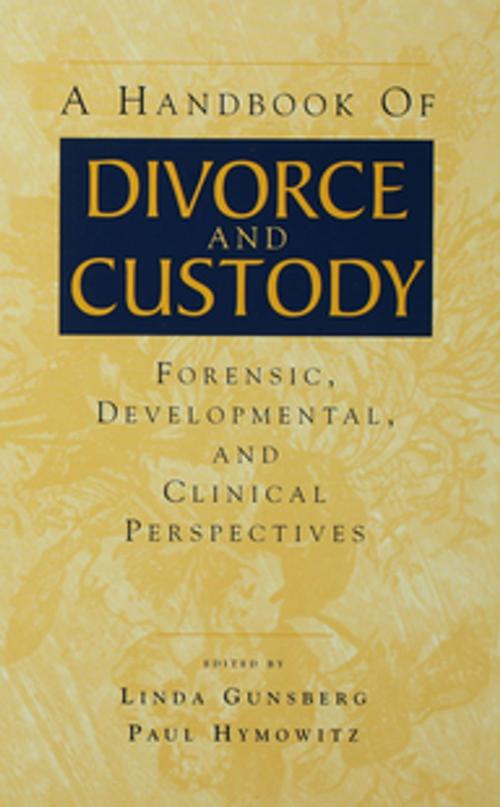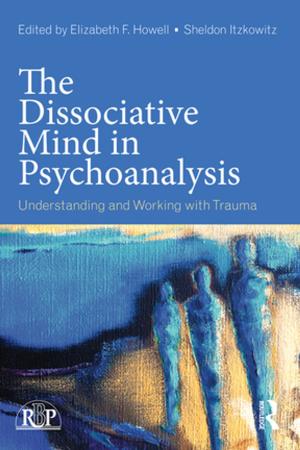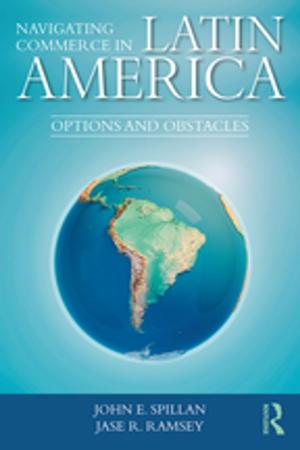A Handbook of Divorce and Custody
Forensic, Developmental, and Clinical Perspectives
Nonfiction, Health & Well Being, Psychology, Reference, Mental Health| Author: | ISBN: | 9781134912452 | |
| Publisher: | Taylor and Francis | Publication: | April 15, 2013 |
| Imprint: | Routledge | Language: | English |
| Author: | |
| ISBN: | 9781134912452 |
| Publisher: | Taylor and Francis |
| Publication: | April 15, 2013 |
| Imprint: | Routledge |
| Language: | English |
The Handbook of Divorce and Custody brings together mental health professionals and forensic specialists dedicated to working in the legal arena with families in crisis. Section I provides the individual perspectives of experienced clinicians, all of whom share a psychodynamic and developmental purview, and supplements their accounts with the viewpoints of a lawyer and a judge. Section II examines parental psychopathology, which is often at the root of family conflict and turmoil. Section III deals with the nature and extent of the state's potential involvement with the family, from ensuring parents' rights to raise their children to identifying those circumstances that justify the termination of parental rights. The remaining three sections follow the progressive issues engaged by divorcing families as they work their way through the legal system: forensic evaluation, post-divorce legal arrangements, and the emotional aftermath of divorce, including indications for various types of therapeutic intervention.
Through the Handbook, contributors pay special attention to a set of core issues that underlie - and complicate - the evaluations, recommendations, and judicial determinations that enter into the divorce/custody process. Specifically, they focus on the inherent conflict between the family's right to privacy and the state's commitment to the best interest of children; the increasingly uncertain question of what constitutes a family and who has the right to legal standing; the problematic role of fathers in the lives of their children; the nature of the evaluation process and the role of the forensic expert in a "good enough" evaluation; the important differences between the role of therapist and the role of evaluator; and, finally, the impact of divorce itself on the lives of today's children.
The Handbook of Divorce and Custody brings together mental health professionals and forensic specialists dedicated to working in the legal arena with families in crisis. Section I provides the individual perspectives of experienced clinicians, all of whom share a psychodynamic and developmental purview, and supplements their accounts with the viewpoints of a lawyer and a judge. Section II examines parental psychopathology, which is often at the root of family conflict and turmoil. Section III deals with the nature and extent of the state's potential involvement with the family, from ensuring parents' rights to raise their children to identifying those circumstances that justify the termination of parental rights. The remaining three sections follow the progressive issues engaged by divorcing families as they work their way through the legal system: forensic evaluation, post-divorce legal arrangements, and the emotional aftermath of divorce, including indications for various types of therapeutic intervention.
Through the Handbook, contributors pay special attention to a set of core issues that underlie - and complicate - the evaluations, recommendations, and judicial determinations that enter into the divorce/custody process. Specifically, they focus on the inherent conflict between the family's right to privacy and the state's commitment to the best interest of children; the increasingly uncertain question of what constitutes a family and who has the right to legal standing; the problematic role of fathers in the lives of their children; the nature of the evaluation process and the role of the forensic expert in a "good enough" evaluation; the important differences between the role of therapist and the role of evaluator; and, finally, the impact of divorce itself on the lives of today's children.















